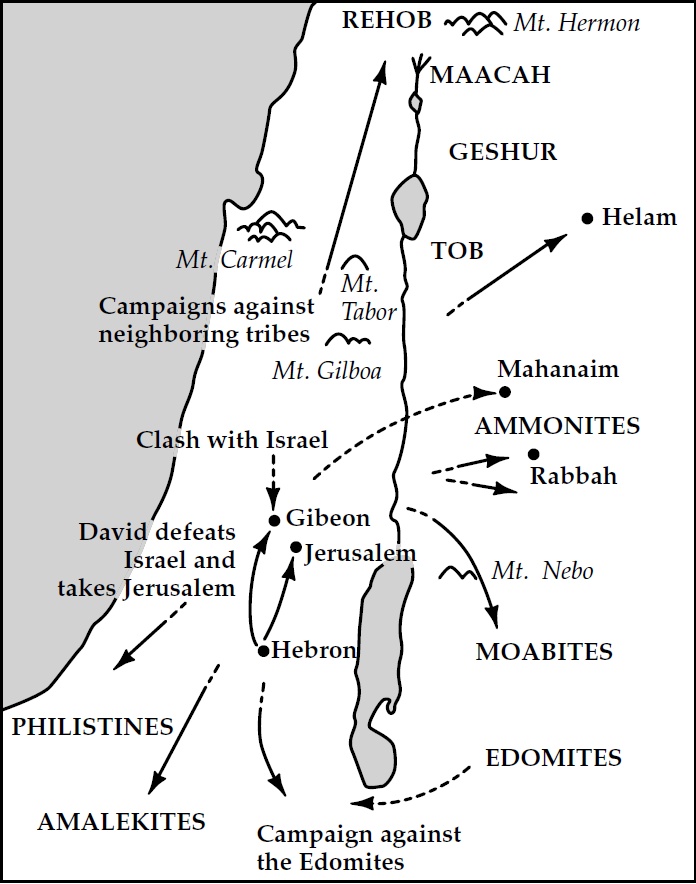The opening of this chapter and the conclusion of the matter in 2 Samuel 19.24-30 (see our study) presents the truth of the proverb that states what a man says seems true until the other side is heard (Proverbs 18.17). Ziba, who we introduced in our study of 2 Samuel 9, presents his case that Mephibosheth (see the same study) is attempting to bring back the kingdom of Saul.
The chapter can be outlined according to the characters introduced:
- Verses 1-4-Ziba the Liar. Ziba lied to David about the character of Mephibosheth. Since there were two extra donkeys, do you suppose one was for Mephibosheth and the other for Ziba? Why do you think David believed him? Satan is the Liar who also tells half-truths, to which of his lies do you listen?
- Verses 5-8-Shimei the Accuser. Being a relative of Saul and a resident of Bahurim, Shimei may have had a few reasons for hating David. He felt David stole the throne from the Benjamites and that David disgraced Saul’s daughter Michal by humiliating her second husband in the city of Bahurim (2 Samuel 3.16, see our study). The ranting of Shimei was more of a curse on David than an attempt to hurt him physically. He was more or less throwing stones at David to get rid of him much like someone would do to a stray dog (13-14). Shimei stated he was speaking on behalf of God. Whether he was or not, we cannot tell; however, David believed he could have been (10).
- Verses 9-14-Abishai the Avenger. Abishai is still protecting David, his king (see our study of 1 Samuel 26). He uses the imagery of the dog in his attack on Shimei.
- Verses 15-23-Ahithophel the Traitor. Ahithophel convinces Absalom to sleep with David’s concubines in the presence of all Jerusalem. This was in fulfillment of the consequences of David sleeping with Bathsheba (2 Samuel 12). This advice is will be used again with Adonijah in 1 Kings 2.19-25.
The last few verses of this chapter will set the stage for the surprise turn of events in the next chapter.







